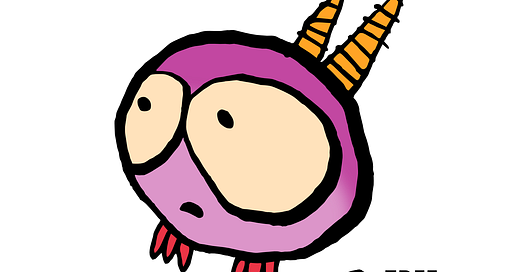A while back I was in the pub (shout out to The Three Tuns, my favourite pub with Nicholas Cage on the sign) with a therapist who was in my BSL Level 2 class. I was telling him some of my ideas about dealing with worry to make sure they weren’t crazy or stupid. (He thinks they aren’t.) During our conversation he said something that started me thinking about worry in a new way:
Humans have the ability to worry, so it must serve a useful purpose.
That’s been tumbling around my brain for a few months, so I was ready to read this note by Susan Cain a couple weeks ago:
… worrying has many unsung benefits. Worriers are thought to live longer because they take care of their health; they’re strivers, driven by fear of failure to succeed, and by self-criticism to improve. They’re good scholars because they consider concepts at great length, from every angle. The tendency to ruminate, says psychiatrist Amy Iversen, “can be channeled into obsessively thinking through a user experience, advertising strategy, or how to pitch a new idea, in the same way a creative could use this energy to memorise every line of a film script, or hone the finest detail of a play’s production.”
The problem isn’t worrying itself. Problems happen when worrying gets pointed in an unhelpful or unproductive direction. Or when worrying takes the lead too often.
There will be more about worrying soon. For the rest of this week, I’m going to tell you everything I know about anxiety. The fact I can fit it into four TREE posts shows you how little I know.
What’s your most useful technique for dealing with worry?
Grow slowly
Jeff







I practice acceptance which precludes worry. That means I choose when to think and when to quiet my mind. I had been quite the thinker but it became anxiety so I reigned the thinking in to quiet my thought life. It’s given me a lovely space within to relax and be easy and gentle with myself and others. 🪷
I see worry as a form of creativity -- one can imagine all of these different scenarios -- which would make one an amazing fiction writer. No story is a good one without conflict and triumph. That said, I am not a huge worrier, which is why I think I would make a better non-fiction writer. (These are the things I think about. Ha.)